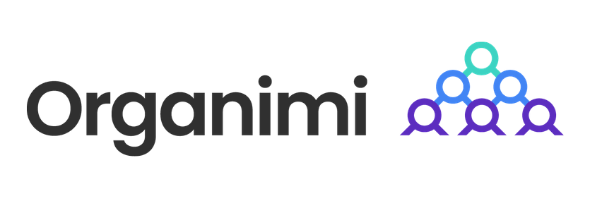While the statistics about how many people become parents vary, one thing we do know is that 100% of the population are children. As each of us grows into adults, I think we quickly realize life isn’t just about feeding ourselves, getting a job, taking care of our living space and socializing.
In order to feel a sense of stability, we must also learn how to navigate the ups and downs of every day existence. This can be overwhelming and when we don’t know where to start, we often end up dealing with things by copying what we see other people doing.
Human beings are social creatures and it is important that we connect to one another and feel like we are part of society. But what happens when the drive to be ‘normal’ – to do as we are told, shown and expected to – is also what is killing us?
Our first teachers were our parents or caregivers. How they handled the stress after a hard day’s work is the first exposure we had to the concept of a ‘job or career.’ They may have come home and watched tv, drank alcohol, got in an argument, talked about their day or asked you about yours. Whatever they did, this was our first ‘normal.’
Over time, we accumulated a whole idea of what work was like. We became exposed to all different kinds of people who did different things. And then one day, we had our first job. Maybe we delivered newspapers or worked in a store or at the movies or maybe we worked for a family business or for our neighbor.
Wherever we worked, our personal habits began to take hold. And when it comes to self-care, the way we treat ourselves at work is usually an exaggerated version of the way we treat ourselves in general. While we all naturally change over time, sometimes for the better and sometimes for the worse, it is most important that we have a firm median that we may rely on.
Our external environment will be in a constant state of flux for the entirety of our lives but our practices, rituals and habits can be taken anywhere and used in diverse situations.
When it comes to mothering and fathering, the focus is generally on providing – ‘putting food on the table’ – but there are 5 major areas, most of which are neglected in our culture and often neglected at home as we are growing up. And in my opinion, these are the 5 things we most need to learn in order to feel fully satisfied.
Soothe
We all experience challenges at work. Some of us may have tight deadlines, overflow from different projects, constant rejection because we are in sales or creative endeavours. It is important that we also have soothing elements like plants, deep breathing time, art, classical music and herbal teas.I even met an executive once who would keep a tennis ball in a long sock in their desk drawer and whenever they felt tense, would throw the sock over their shoulder and roll around on it. This is a great way to soothe the body along with stretching, doodling, repeating affirmations, going for walks and singing to ourselves quietly.
Replenish
Caffeine and sugar are some of the most widely used substances to get us through a work day. However yummy, it is important that we are also drinking plenty of water, eating lots of fruits and vegetables, getting lots of sleep and deep breathing regularly. This is the only real way to maintain long term energy. And while most people can’t sleep on the job, many are becoming more comfortable with meditating at work, which is a wonderful way to get replenished quickly. Just 5 minutes goes a long way.
Nurture
There are many situations that leave us feeling inadequate but there are also many skills we can learn that can curb this experience. Instead of avoiding a situation at work or getting angry every time it comes up, we can ask ourselves, what skill could I learn that would help me through this situation? Whether it’s upgrading our ability with a computer program or taking a negotiation course or exercising regularly, there is always something we can nurture that will help us release our fear and anger.
Protect
Toxic situations and toxic people are everywhere. While they can’t be completely avoided, learning healthy boundaries is a must. If a person is a bully or easily angry or irritated cutting communication back to email is a reasonable thing to do. If we are expected to work overtime or make up for the slack of colleagues, we are allowed to say no.Our culture tends to tell us the opposite, that we are supposed to suck it up or we are too sensitive but these are common phrases that a bully uses to avoid responsibility for their words, actions and choices.We have all heard the phrase ‘hurt people, hurt people.’ The truth is that if we don’t muster up the courage to stand up for ourselves, we will end up being a bully as well because we have spent significant time and energy interacting with bullies.
Provide
Being a provider means taking responsibility. In every situation there is the opportunity to add value and contribute or not. When we start asking ourselves, ‘what can I provide right now?’ a whole new world will open up to us. We no longer act like children, waiting for reward or punishment. Instead we realize that whether we are providing someone with a safe space, a new idea, an opportunity or a connection, we become indispensable.While lots of people are talking about health and well-being these days, there is still a strong stubborn stance about what it means to work hard – giving 110%, hustling, pulling all-nighters etc. – and the rewards of such behaviour.I think the most obvious example of why this doesn’t make sense is taking a look at professional athletes. No one would tell an Olympic athlete not to sleep or meditate because such habits are for soft people. In fact, it is the exact opposite. Athletes are expected to do whatever it takes to win. If an athlete practices affirmations, goes to therapy and is in bed by 9pm, they are regarded as committed, disciplined and relentless. And yet when a regular person does those things it is called ‘new age’ or ‘woo hoo.’ Instead of being seen as someone who takes life seriously and is training to win, a person who practices self-care is still often seen in a distorted manner.This is what we are up against culturally, in traditional workplaces and in many groups of families and friends. We are still in a transition time where the research behind productivity and happiness is widely available but is just being adopted in small pockets here and there. It will take time to be the new normal.
But as individuals, we can make it our new normal to mother and father ourselves enjoying the process, experience, pleasure, relief and realization along the way. And with such a foundation, we can stop scrambling for better feelings on the outside and truly experience a sense of security, power and clarity on the inside.
Love Mala
It’s Cool To BE Happy

